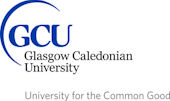Dr Lee John Curley BSc (Hons) SFHEA graduated with his PhD in juror decision making in June, 2018. He is currently a Lecturer in Applied Psychology at Glasgow Caledonian University. His research interests include forensic cognition, legal psychology and decision science. During his academic career, Lee has accrued an impressive publication record, written for the press (e.g., The Conversation), been written about by the press (e.g., The Telegraph and the Times), been interviewed by BBC Radio Scotland and BBC Five Live, presented his research at international conferences, secured external funding (e.g., The Leverhulme Trust and the British Academy) and been invited to discuss his research with respected institutions (e.g., Faculty of Advocates, the British Medical Association, and the Scottish Criminal Bar Association). In 2023, he was even invited to join a discussion on jurors at the House of Lords.
Experience
-
2024–presentLecturer, Glasgow Caledonian
-
2019–2024Lecturer, The Open University
-
2017–2019Teaching Associate , Edinburgh Napier University
Education
-
2018Edinburgh Napier University , PhD
-
2014Edinburgh Napier University, BSc Honours Degree in Psychology (2:1)
Publications
-
2024Corporate Colonization, Geopolitical Power Struggles, and Hypernudge – How Social Media Engineers Minds. , In C. Shei & J. Schnell (Eds), Oxford: Routledge Handbook of Language and Mind Engineering. Oxford: Routledge.
-
2024The Effect of Verdict System on Juror Decisions: A Quantitative Meta-Analysis, Journal of Psychiatry, Psychology and Law
-
2024Are legal experts better at making decisions than laypersons? A psychological evaluation of the role of juries in the 21st century, Journal of Criminal Psychology
-
2024The strengths and limitations of the experimental study of juror and jury decision making. , In N. Monaghan (Ed), Challenges in the Jury System: UK Juries in Comparative Perspective. Oxford: Routledge.
-
2023An Interdisciplinary Re-Perspectivation of the Study of Heuristics, Biases, and Nudges. , New Trends in Social and Liberal Sciences
-
2022The Emergence of Global Behavioral Public Policy – Developments of and within the Nudge Unit. , World Science Academy Journal
-
2022The Emergence of Global Behavioral Public Policy – Developments of and within the Nudge Unit, World Science Academy Journal
-
2022Cognitive and human factors in legal layperson decision making: Sources of bias in juror decision making, Medicine, Science and the Law
-
2022Proven and not proven: A potential alternative to the current Scottish verdict system, Behavioural Sciences and the Law
-
2021Verdictspotting: Investigating the effects of juror bias, evidence anchors, and verdict system in jurors., Psychiatry, Psychology and law
-
2021Informing reform: The views of legal professionals on the unique aspects of Scottish Law. , Medicine, Science and the Law
-
2020Author Response: No need for throwing stones – wherever you live… , Forensic Science International: Synergy
-
2020Assessing cognitive bias in forensic decisions: A review and outlook, The journal of Forensic Science
-
2020An inconvenient truth: More rigorous and ecologically valid research is needed to properly understand cognitive bias in forensic decisions, Forensic Science International: Synergy
-
2020Authors’ Response: Is the definition of task-irrelevant contextual information black and white? , The journal of Forensic Science
-
2020Bilingualism: The foreign language effect does not extend to rational decision making. , Journal of Articles in Support of the Null Hypothesis
-
2019Threshold point utilisation in juror decision-making, Psychiatry, Psychology and law
-
2019The bastard verdict and its influence on jurors, Medicine, Science and the Law
-
2018Faith in thy threshold, Medicine, Science and the Law
-
2018Decision Science: A new hope, Psychological Reports
-
2017The Relationship between the Big 5 Personality Traits and Eyewitness Recognition, Journal of Articles in Support of the Null Hypothesis
-
2017Are consistent juror decisions related to fast and frugal decision making? Investigating the relationship between juror consistency, decision speed and cue utilisation. , Medicine, Science and the Law
-
2017Decision Making Process of Jurors In Factbook: Psychology and Law, European Association of Psychology and Law Student Society
-
2016Heuristics:The good, the bad, and the biased - what value can bias have for decision-makers?, PSYPAG
Grants and Contracts
-
2024Conspiracy-juror bias: Studying how a conspiracy mindset affects jurors
- Role:
- Co-I
- Funding Source:
- Leverhulme Trust
-
2023Jury Decision-making in English Male Rape Trials: Investigating the Role of Defendant Race and Complainant Sexuality on Juror Judgements and Verdict Outcome
- Role:
- Co-I
- Funding Source:
- British Academy/Leverhulme
-
2020Super-recognisers: Is Bias their Kryptonite?
- Role:
- PI
- Funding Source:
- British Academy/Leverhulme
Professional Memberships
- Scottish Institute of Policing Research
- Centre for Policing Research and Learning
- Harm and Evidence Research Collaborative
- The International Association of Forensic Mental Health Services.
- Glasgow, Scotland
- Website
- @Psycurlogy
- Article Feed
- lee.curley@gcu.ac.uk
-
For media enquiries,
lee.curley@open.ac.uk - ORCID
- Joined


